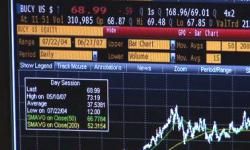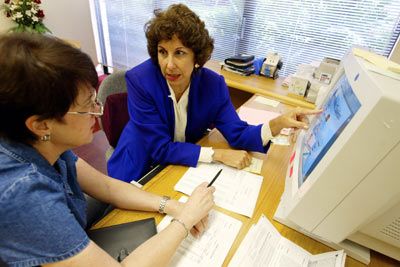The broker dealer is keeping track of the number of shares of stock you own. But that's not enough. Somewhere, there needs to be a central repository that knows who owns what. This is critical for several reasons:
- Each company needs to know all the people who own its stock so it can pay dividends and send notices to shareholders. If all the "who owns that stock" information was held only by the broker dealers, it would be very hard for companies to find all of its shareholders.
- If broker dealers had to talk to each other to make every trade, it would complicate things and introduce the chance of error. By centralizing things, life is easier for everyone.
- If a broker dealer were, for any reason, to go down or go out of business, some entity needs to know who owns what. In other words, there needs to be a backup system, separate from the broker dealer, that knows who owns every single share of stock.
The central entity that holds the "who owns what" information in the United States is called the Depository Trust Company, or the DTC. When you trade stock, the DTC gets notification of the trade and handles the actual change of ownership from one person to another. In other words, the DTC handles the details of taking away the shares of stock from the seller and giving them to the buyer. It also handles the movement of money between the broker dealers for the buyer and seller. This process is called clearance, and it can take several days.
Emergencies
Because broker dealers hold all of your account information and your portfolio information on your behalf, and because stock trading is such an important part of the American financial system, broker dealers are required to stay "up" all the time. As in, they can't go off the air for a day of maintenance. They can't go down if there is a power failure or a thunderstorm. They need to have extremely reliable, redundant systems that are always there when people need to trade. The same holds true for the stock exchanges and the DTC.
Often, because of prudence and regulations, these organizations will go to great lengths to plan against emergencies. A typical scenario might be for a broker dealer to build its primary computer facility away from densely populated areas and in a hardened and secure building. The building will have backup power generators and enough fuel to last for days if the power goes out.
In addition, broker dealers may have a backup facility located hundreds or thousands of miles away from the primary facility. This is done to handle full-scale catastrophes where something like an earthquake, eruption or plane crash might destroy the primary facility. The primary and secondary facility may run in a totally synchronous mode, allowing switchover at a moment's notice. Another possibility: The backup facility might need to be brought online overnight so it's ready for operation on the next business day.
All of this redundancy is put in place to make sure that people will be able to trade no matter what happens.
For lots more information on electronic trading and related topics, see the links on the next page.


